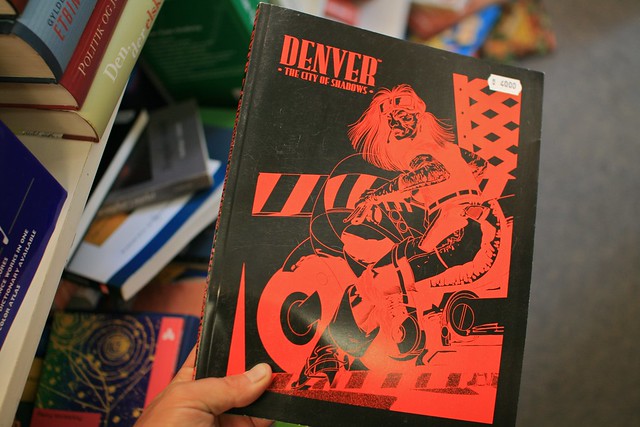For people interested in the relationship between Science-Fiction and the urban environment, Cyberpunk Cities Science Fiction Meets Urban Theory by Carl Abott is certainly a good resource.
 (A picture of a Shadowrun sourcebook that I ran across in Denmark this week)
(A picture of a Shadowrun sourcebook that I ran across in Denmark this week)
The paper argues that cyberpunk culture embedded certain notions ("global cities", cities as communication system, the importance of Los Angeles school of urban studies). It also highlights how urban planners can "understand the influence of a range of social theories on public understanding of planning issues".
The whole paper is of interest but I was struck by this excerpt:
"Reading and discussing science fiction, whether cyberpunk novels or work from other thematic streams, will not help a planning student learn how to model transportation demand or a practitioner to write up findings on a conditional use application. Science fiction does, however, have the capacity to engage our imagination in thinking about present problems and future challenges, a heuristic function that derives from its willingness to take economic, social, and cultural patterns a step beyond their common sense extensions.
Because the cyberpunk subgenre draws on ideas that ascribe power to technological change and global capitalism as all-encompassing forces, it offers relatively little direct guidance for planners. However, it does suggest the need for flexibility, for seeing plans as reflexive processes intended as frameworks for responding to inherent instability. It also suggests the value of creating opportunities for spontaneous and informal social institutions by loosening building codes, preserving low-rent commercial spaces, and making information infrastructures as ubiquitous and cheap as possible."
Why do I blog this? Because of recent work about design fiction and urban futures. Moreover, it's important to think about the excerpt above beyond urban contexts (by replacing "planning" by other forms of social interventions).